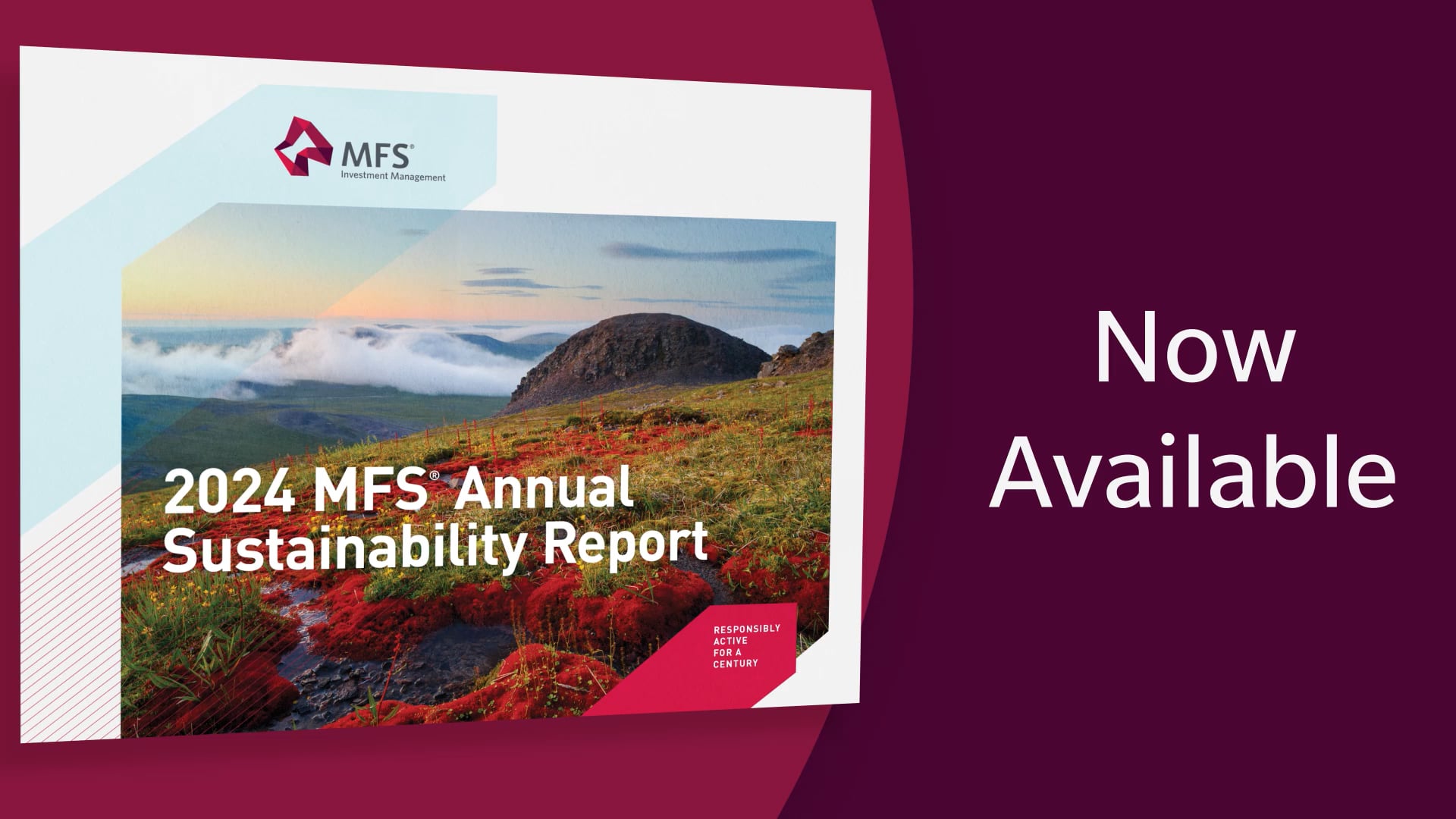
2024 MFS® Annual Sustainability Report
Explore our approach to sustainability, stewardship activities and corporate culture.
Responsibly Active for a Century
Whether it’s advancing diversity, equity and inclusion or reducing our environmental footprint, we aim to lead by example.
Discover the impact of our approach — consistently aligning our sustainability initiatives with our core purpose of creating long-term value responsibly — on our portfolio companies, clients and communities.
Inside the Report
61615.1



